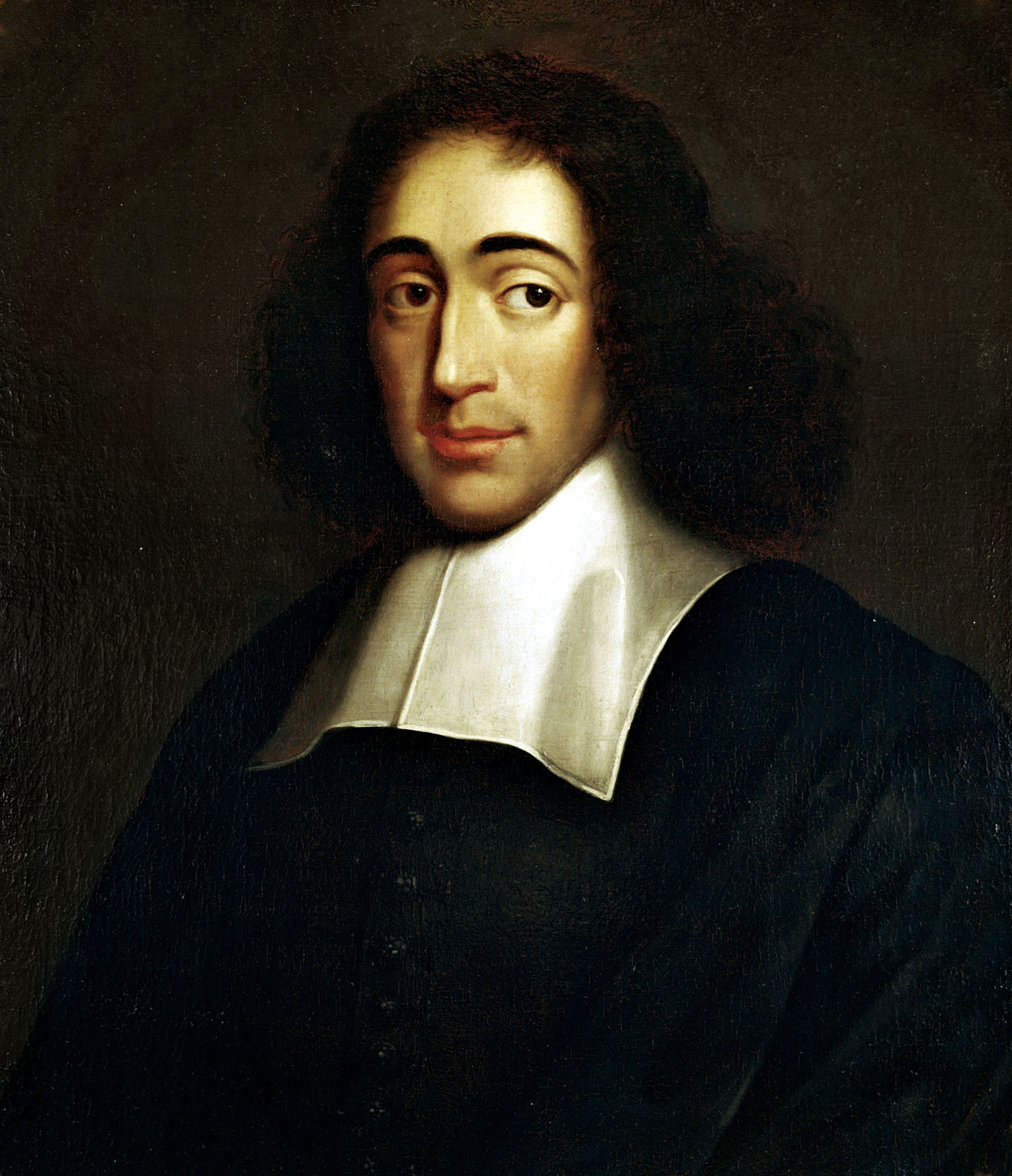Baruch Spinoza nejznámější citáty
Baruch Spinoza: Citáty o moudrosti
Baruch Spinoza citáty a výroky
„Každá situace má smysl, jen ho najít.“
Zdroj: [Berková, Alexandra, Knížka s červeným obalem, Práce, Praha, 1988, 53, druhé, 24–069–88]
„Každý má tolik práva, kolik má moci.“
TANTUM IURIS HABET UNUSQUISQUE, QUANTUM POTENTIA VALET
„Nikdo až dosud nezjistil, co tělo může.“
Zdroj: [Vergely, Bertrand, Velké filosofické otázky, Levné knihy KMa, Praha, 2009, 978-80-7309-636-6, 14, Spinozova Etika]
Baruch Spinoza: Citáty anglicky
“There is no hope unmingled with fear, and no fear unmingled with hope.”
Varianta: There can be no hope without fear, and no fear without hope.
“In so far as the mind sees things in their eternal aspect, it participates in eternity.”
Zdroj: Spinoza in der europäischen Geistesgeschichte
“No to laugh, not to lament, not to detest, but to understand.”
Zdroj: Theological-Political Treatise
Letter 56 (60), to Hugo Boxel (1674) http://oll.libertyfund.org/?option=com_staticxt&staticfile=show.php%3Ftitle=1711&chapter=144218&layout=html&Itemid=27
Zdroj: The Letters
Kontext: When you say that if I deny, that the operations of seeing, hearing, attending, wishing, &c., can be ascribed to God, or that they exist in him in any eminent fashion, you do not know what sort of God mine is; I suspect that you believe there is no greater perfection than such as can be explained by the aforesaid attributes. I am not astonished; for I believe that, if a triangle could speak, it would say, in like manner, that God is eminently triangular, while a circle would say that the divine nature is eminently circular. Thus each would ascribe to God its own attributes, would assume itself to be like God, and look on everything else as ill-shaped.
The briefness of a letter and want of time do not allow me to enter into my opinion on the divine nature, or the questions you have propounded. Besides, suggesting difficulties is not the same as producing reasons. That we do many things in the world from conjecture is true, but that our redactions are based on conjecture is false. In practical life we are compelled to follow what is most probable; in speculative thought we are compelled to follow truth. A man would perish of hunger and thirst, if he refused to eat or drink, till he had obtained positive proof that food and drink would be good for him. But in philosophic reflection this is not so. On the contrary, we must take care not to admit as true anything, which is only probable. For when one falsity has been let in, infinite others follow.
Again, we cannot infer that because sciences of things divine and human are full of controversies and quarrels, therefore their whole subject-matter is uncertain; for there have been many persons so enamoured of contradiction, as to turn into ridicule geometrical axioms.
“We feel and experience ourselves to be eternal.”
Sentimus experimurque, nos aeternos esse.
Part V, Prop. XXIII, Scholium
Varianta: We feel and know that we are eternal.
Zdroj: Ethics (1677)
“But love for an object eternal and infinite feeds the mind with joy alone, and a joy which is free from all sorrow. This is something greatly to be desired and to be sought with all our strength.”
Sed amor erga rem aeternam et infinitam sola laetitia pascit animum, ipsaque omnis tristitiae est expers; quod valde est desiderandum totisque viribus quaerendum.
I, 10; translation by W. Hale White (Revised by Amelia Hutchison Stirling)
On the Improvement of the Understanding (1662)
A. Wolf, from the introduction to Spinoza's Short Treatise on God, Man, and His Well-Being (1910)
S - Z
p, 125
Spinoza: His Life and Philosophy (1880)
Jorge Luis Borges, "Baruch Spinoza", as translated in Spinoza and Other Heretics, Vol. 1: The Marrano of Reason (1989) by Yirmiyahu Yovel
A - F
“Extreme pride or dejection indicates extreme ignorance of self.”
Maxima superbia vel abjectio est maxima sui ignorantia.
Part IV, Prop. LV
Ethics (1677)
“Spinoza: the absolute philosopher, whose Ethics is the foremost book on concepts.”
Gilles Deleuze, Negotiations (cited in the Internet Encyclopedia of Philosophy http://www.iep.utm.edu/d/deleuze.htm#SH3b)
A - F, Gilles Deleuze
“God is the Immanent Cause of all things, never truly transcendent from them”
Deus est omnium rerum causa immanens, non vero transiens
Part I, Prop. XVIII
Ethics (1677)
Bertrand Russell, in The History of Western Philosophy (1945) Ch. X.
M - R
“Needs must it be hard, since it is so seldom found. How would it be possible, if salvation were ready to our hand, and could without great labour be found, that it should be by almost all men neglected? But all things excellent are as difficult as they are rare.”
Et sane arduum debet esse, quod adeo raro reperitur. Qui enim posset fieri, si salus in promptu esset et sine magno labore reperiri posset, ut ab omnibus fere negligeretur? Sed omnia praeclara tam difficilia, quam rara sunt.
Part V, Prop. XLII, Scholium
Ethics (1677)
Zdroj: Political Treatise (1677), Ch. 1, Introduction
Part I, Prop. XXIX, Scholium (trans: Edwin Curley, London: Penguin, 1996)
Ethics (1677)
Letter to Hugo Boxel (October 1674) The Chief Works of Benedict de Spinoza https://books.google.com/books?id=Nz1kRKDMbUMC (1891) Tr. R. H. M. Elwes, Vol. 2, Letter 58 (54).
Georg Wilhelm Friedrich Hegel, comparing Spinoza's philosophy to that of the Eleatics, in Lectures on the History of Philosophy (1896), Vol. 3, Ch. I : The Metaphysics of the Understanding, § 2 : Spinoza, p. 257
“He who seeks equality between unequals seeks an absurdity.”
Zdroj: Political Treatise (1677), Ch. 9, Of Aristocracy, Continuation
